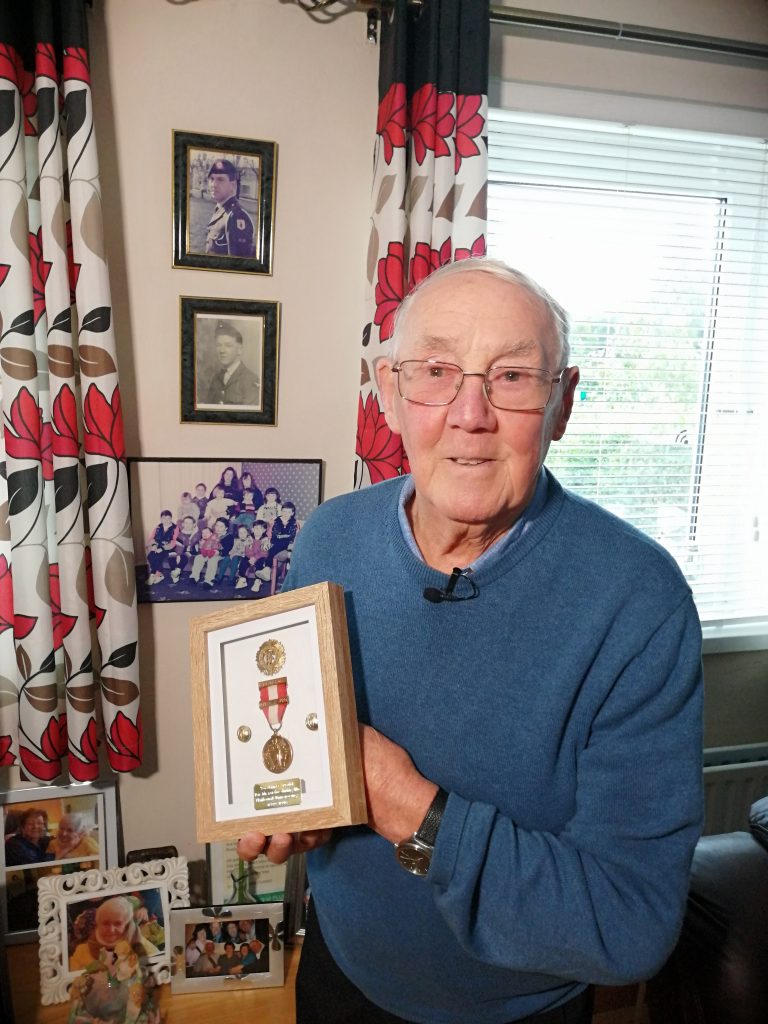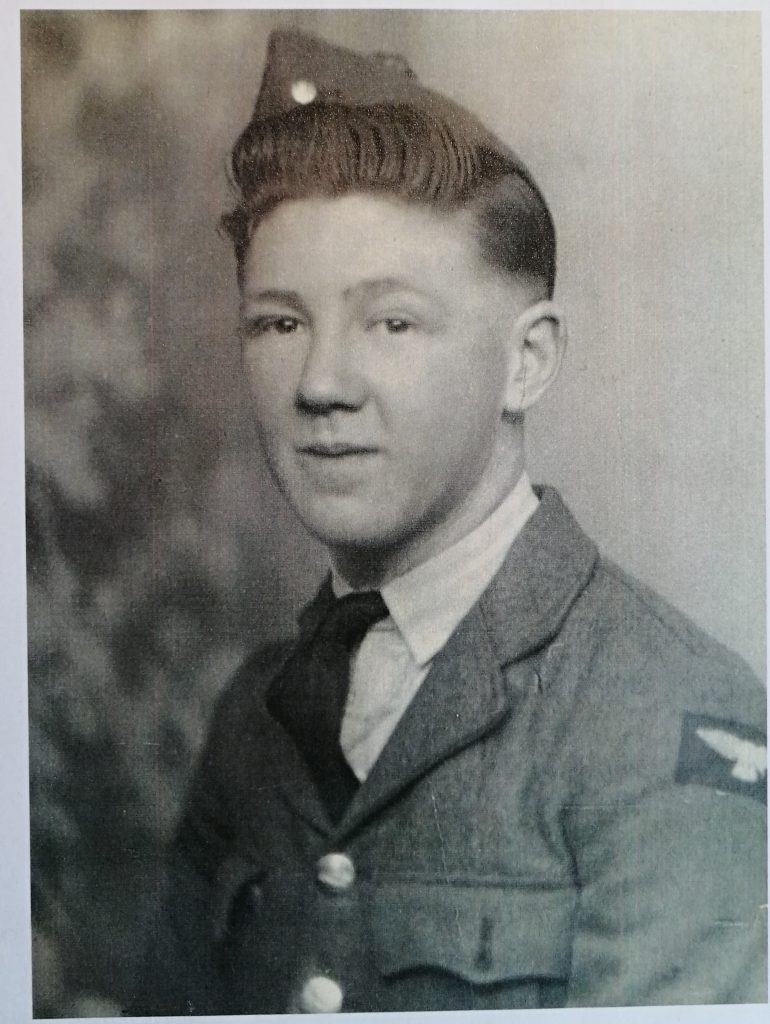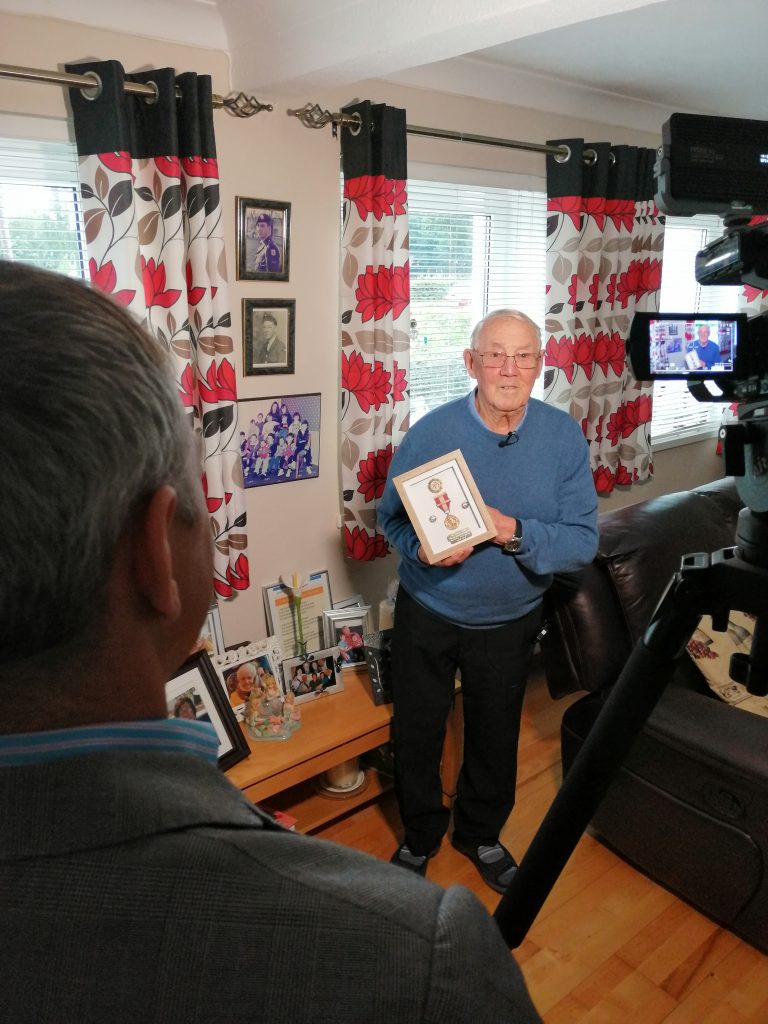Local Defence Force and Royal Air Force Ex-Serviceman
Jimmy Dodd

It was a privilege to meet and record the story of ex-serviceman, 92-year-old Jimmy Dodd. During the Emergency 1939-1946 Jimmy was living on the Dargle Road in Bray, County Wicklow, working as a messenger boy. He remembers the Emergency well. When he turned 17, he volunteered for Óglaigh na hÉireann / Irish Defence Forces and joined the North Wicklow Battalion, Local Defence Force (LDF).
Jimmy remembers clearly firing the .303” Lee Enfield at Kilpedder rifle range and the cherished overcoat issued at the time. Jimmy’s unit was called out three times during this period. First to relieve the people in Bray after the Dargle burst its banks. People whose houses were flooded were brought to the LDF Headquarters at Rockbrae House. The second incident occurred on 12 August 1946, when a Junkers 52 with 23 passengers – French Girl Guides – and a crew of four crashed near Djouce Mt. in the Wicklow mountains, miraculously with no loss of life. Military units were mobilised to help rescue them. The third took place on the early morning of 4 March 1947, when 13km off Dalkey Island, the Norwegian MV Bolivar – of Fred Olsen and Company – hit the Kish Bank and broke up. Bound for Dublin Port with badly needed grain and other supplies its valuable cargo was sought after by members of the ration weary public. The LDF were called in to patrol the beaches and protect the washed-up cargo.

Seeking adventure Jimmy headed to Belfast and enlisted in the Royal Air Force (RAF) for the Duration of the Present Emergency. He was trained as a Vulcaniser and ground crew, working on every aircraft of the period. Jimmy served throughout the UK in several bases. In 1948 Jimmy was deployed to Berlin, Germany, and recounted the devastation of the city following the war. As tensions rose between the Soviet Union and the Western Allies, Berlin was blockaded by the Soviets from 24 June 1948 – 12 May 1949. The only access was by air, and the Allies launched the Berlin Air Lift to relieve the city. In 1951 he was demobbed and went on to become a plasterer, get married and raise eight children. He lives today in Sallynoggin, Dublin.
Per Ardua Ad Astra

If you know of an ex-servicemen or women from the Emergency period and would like their story recorded, please drop us a line.
This project is supported by Dublin Port Company Heritage Office.

